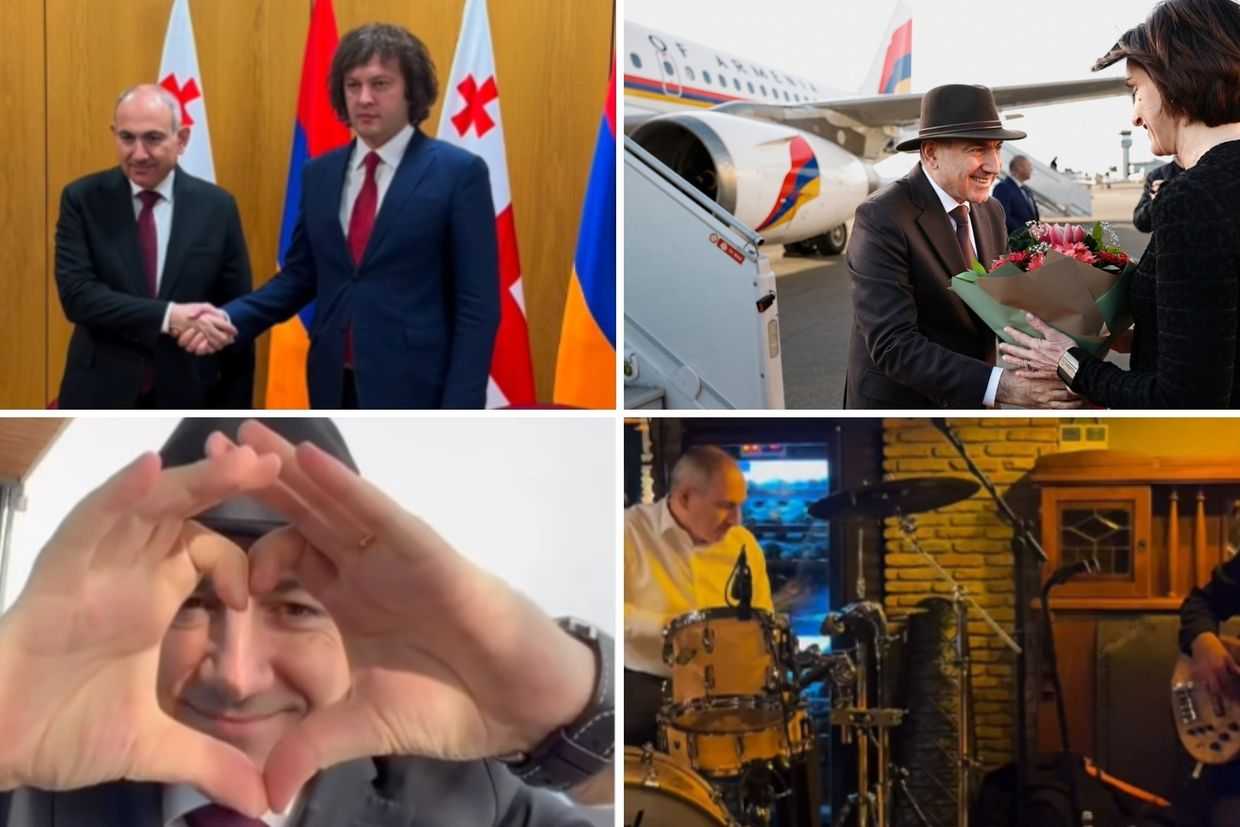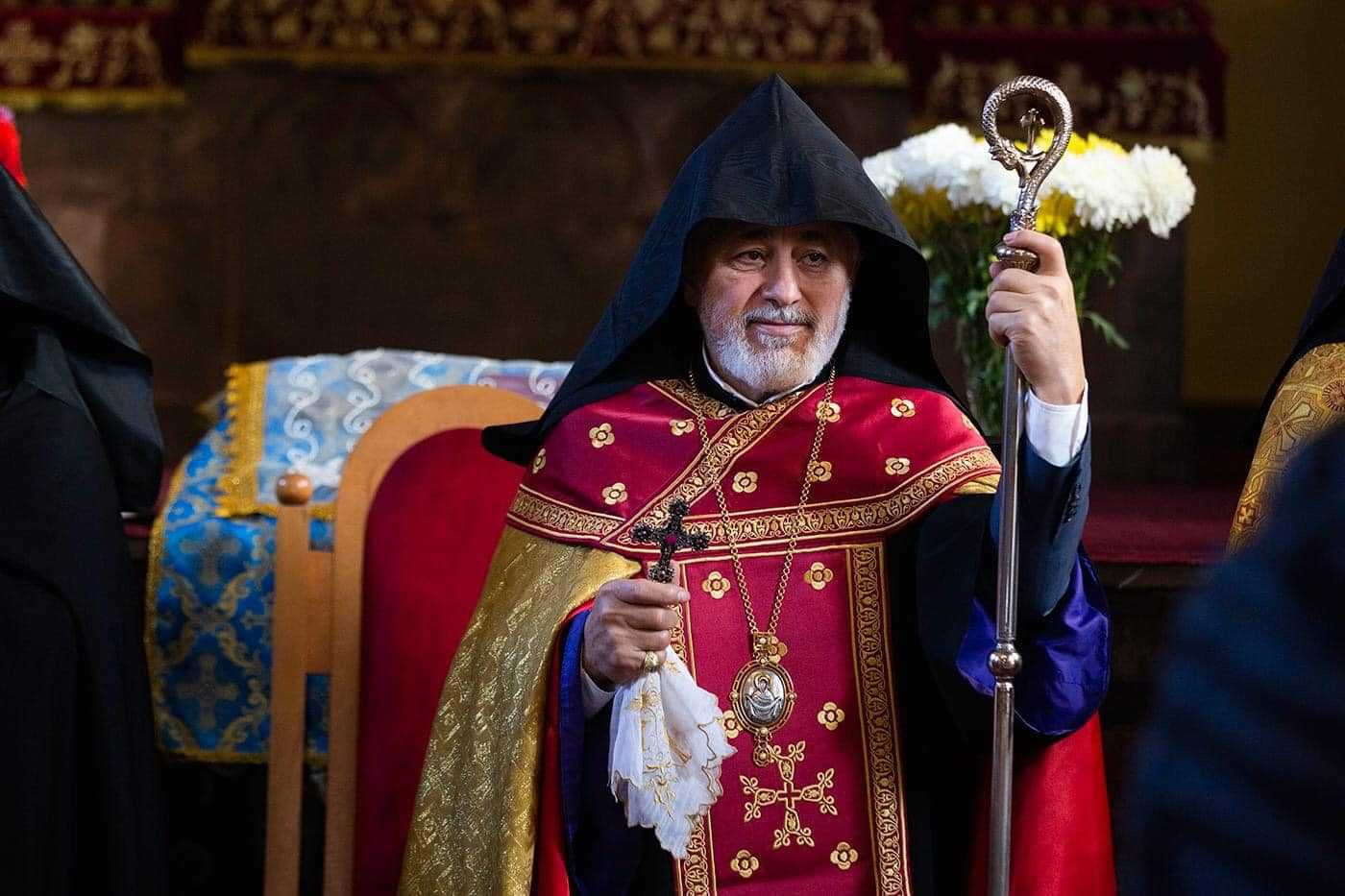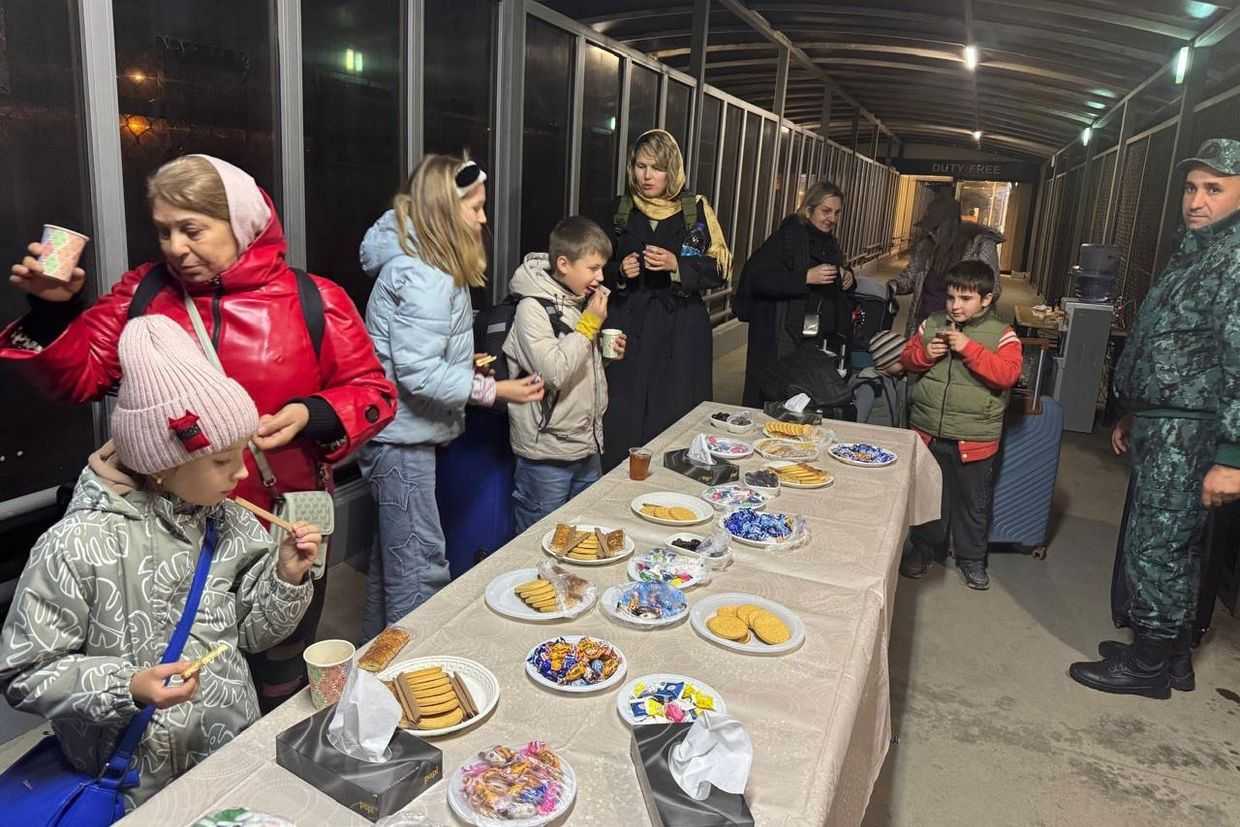
Delays in the exchange of prisoners of war (POWs) and a large number of soldiers missing in action have led to increasing frustration in Armenia.
The families of the missing have organised almost daily protests in front of the Ministry of Defence, the Armenian government building, and the Russian Embassy in Yerevan for the past two weeks.
Protests have also been held by Armenian artists and intellectuals demanding the government and foreign embassies and international organisations enforce the exchange of POWs. So far, they have held three rallies and submitted letters to the US, French, and Russian Embassies.
On 26 November, protesters attempted to stop Prime Minister Nikol Pashinyan’s motorcade near his office, leading to a short scuffle with security forces. Pashinyan had held two separate meetings with several families beforehand and held another one late that night.
According to his spokesperson, Mane Gevorgyan, the Pashinyan promised to keep the families updated and more meetings were also promised.
Nagorno-Karabakh President Arayik Harutyunyan also met with family members of those missing in action on 30 November.
Both sides have blamed the other for the delay, and it remains unclear why no exchange has yet taken place. The 10 November agreement that brought an end to the fighting stipulated the exchange of bodies and of prisoners of war.
Both sides have also advocated an ‘all for all’ exchange, with each releasing all of the captives being held at the same time. It is unclear if this includes those detained prior to the outbreak of war on 27 September.
Joint searches for the bodies of soldiers from both sides were launched on 13 November with the participation of Armenian and Azerbaijani forces alongside Russian peacekeepers and representatives of the International Centre for the Red Cross in Armenia and Azerbaijan.
‘Both sides have to comply with international humanitarian law’
The International Committee of the Red Cross (ICRC) has been directly involved in the process of exchanging bodies. The ICRC offices in both Armenia and Azerbaijan told OC Media that they had visited captives in both countries and that they had been in touch with their families.
They said that no deadlines for the exchange of bodies or POWs were set in the trilateral agreement that brought the war to an end.
Zara Amatuni, head of communications at the ICRC in Armenia told OC Media that ‘international humanitarian law stipulates that release and return has to take place immediately after fighting has stopped.’
‘However, ICRC as a neutral intermediary humanitarian institution does not have the authority to enforce the decision on the transfer of detainees to happen sooner. The sides of the conflict are the ones who can negotiate that. Our role is to provide support and facilitate the release and return upon their decision.’
The ICRC declined to comment on the number of captives being held, and their number remains unclear.
Amatuni told OC Media that the ICRC did not have ‘complete information’ on the numbers. ‘We’ve told the sides that we need full lists of the detained and we hope the handovers happen soon. This is the obligation of the conflict sides under the international humanitarian law and we are ready to provide any support’.
The Human Rights Defender of Nagorno-Karabakh, Artak Beglaryan, has said that there are almost 60 Armenian POWs being held by Azerbaijan, very few of which their office has not been able to identify. Beglaryan also claimed there were 40 civilians missing and that 11 Armenian civilians that had been held captive had died.
‘The bodies of seven of them have been returned, however, some of them were killed,’ Beglaryan stated.
On 27 November, Armenia’s Human Right Defender Arman Tatoyan stated that Azerbaijan was ‘artificially delaying the process of exchanging POWs and bodies’. According to him, Azerbaijan has claimed that POWs will be exchanged after the exchange of bodies. However, Tatoyan has claimed that Azerbaijan was also purposefully delaying this process.
There has also been concern in Armenia about the treatment of prisoners in Azerbaijan.
On Thursday, international rights group Human Rights Watch released a statement accusing Azerbaijani forces of ‘inhumanely’ treating captives during the war.
‘They subjected these prisoners of war (POWs) to physical abuse and humiliation, in actions that were captured on videos and widely circulated on social media since October.’
‘The videos depict Azerbaijani captors variously slapping, kicking, and prodding Armenian POWs, and compelling them, under obvious duress and with the apparent intent to humiliate, to kiss the Azerbaijani flag, praise Azerbaijani President Ilham Aliyev, swear at Armenian Prime Minister Nikol Pashinyan, and declare that Nagorno-Karabakh is Azerbaijan. In most of the videos, the captors’ faces are visible, suggesting that they did not fear being held accountable.
‘Although some of the prisoners depicted in videos Human Rights Watch reviewed have, in subsequent communications with their families, said they are being treated well, there are serious grounds for concern about their safety and well-being,’ the statement said.
On 23 November, the European Court of Human Rights (ECHR) approved an application by lawyers Siranush Sargsyan and Artak Zeynalyan calling for interim measures against Azerbaijan to protect the rights of 10 military personnel and three civilians who were known to be in Azerbaijani captivity. The request was submitted on behalf of their families in ‘order to protect the rights of those in captivity as well as for them not to be treated in an inhuman and degrading way’.
The ECHR has required Azerbaijan to submit information about the whereabouts, living and health conditions of those in captivity by 4 December. The ECHR had previously requested information from Azerbaijan by 27 November, however, the Azerbaijani government failed to do so.
For ease of reading, we choose not to use qualifiers such as ‘de facto’, ‘unrecognised’, or ‘partially recognised’ when discussing institutions or political positions within Abkhazia, Nagorno-Karabakh, and South Ossetia. This does not imply a position on their status.









